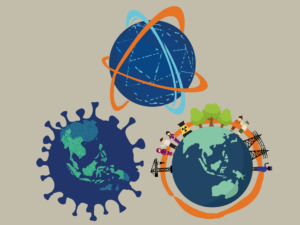Other Research Areas

Transboundary Consultation
Environmental assessments could potentially be used as mechanisms to enhance transboundary consultation within the context of a state making the national decision to embark on a nuclear power programme and the siting of a nuclear power plant. Environmental impact assessments (EIA) and strategic environmental assessments (SEA) can help to facilitate transboundary consultation on potential environmental impacts of nuclear power development at project or plan and programme levels, as the case may be.
Key outputs include:
- Summary report of the workshop entitled “Regional Cooperation to Enhance Transboundary Consultation on Nuclear Power Development in Southeast Asia” held in May 2019
- Selected Documents on Transboundary Consultation Relating to Nuclear Power Plant Development
-
Denise Cheong and Nivedita S, “Enhancing Transboundary Consultation in the context of Nuclear Power Development in Southeast Asia” (2021) 39 Chinese (Taiwan) Yearbook of International Law and Affairs, 111. (Brill).
Topical Areas
Emerging areas of research include work to understand the legal and policy issues related to the nexus between nuclear energy, climate change and sustainable development and the nexus between public health emergencies and the nuclear threat. In the case of climate change and sustainable development, the focus has been on the following: (i) the ongoing policy dialogue on the role of nuclear energy in climate action and sustainable development taking place globally as well as within specific regions such as the United National Economic Commission for Europe region (where nuclear energy accounts for 20% of electricity generated and over 40% of low-carbon generation); (ii) taxonomic developments, such as those taking place within the EU, which may result in nuclear-related activities being classified as sustainable economic activities or not as the case may be and the implications this will have on nuclear projects worldwide; and (iii) deep geological repositories as a disposal solution for high-level radioactive waste, given that this remains a key challenge for the sustainability of nuclear energy.
In terms of the nexus between public health emergencies and the nuclear threat, the focus is on understanding global and ASEAN developments within the health and disaster management sectors that would apply to nuclear governance, particularly within the context of emergency preparedness and response, an aspect of nuclear safety.
Key outputs include:
- Selected Documents on Nuclear Energy Climate Change and Sustainable Development
- E-Resource Guide: Nuclear Energy, Climate Change and Sustainable Development
- E-Guide: Nuclear Finance (together with GNE Advisory)
- Working Paper on ASEAN Response to COVID-19 and Lessons Learnt for Nuclear Governance: Part 1 – ASEAN Response to Covid-19 (Available on request)

